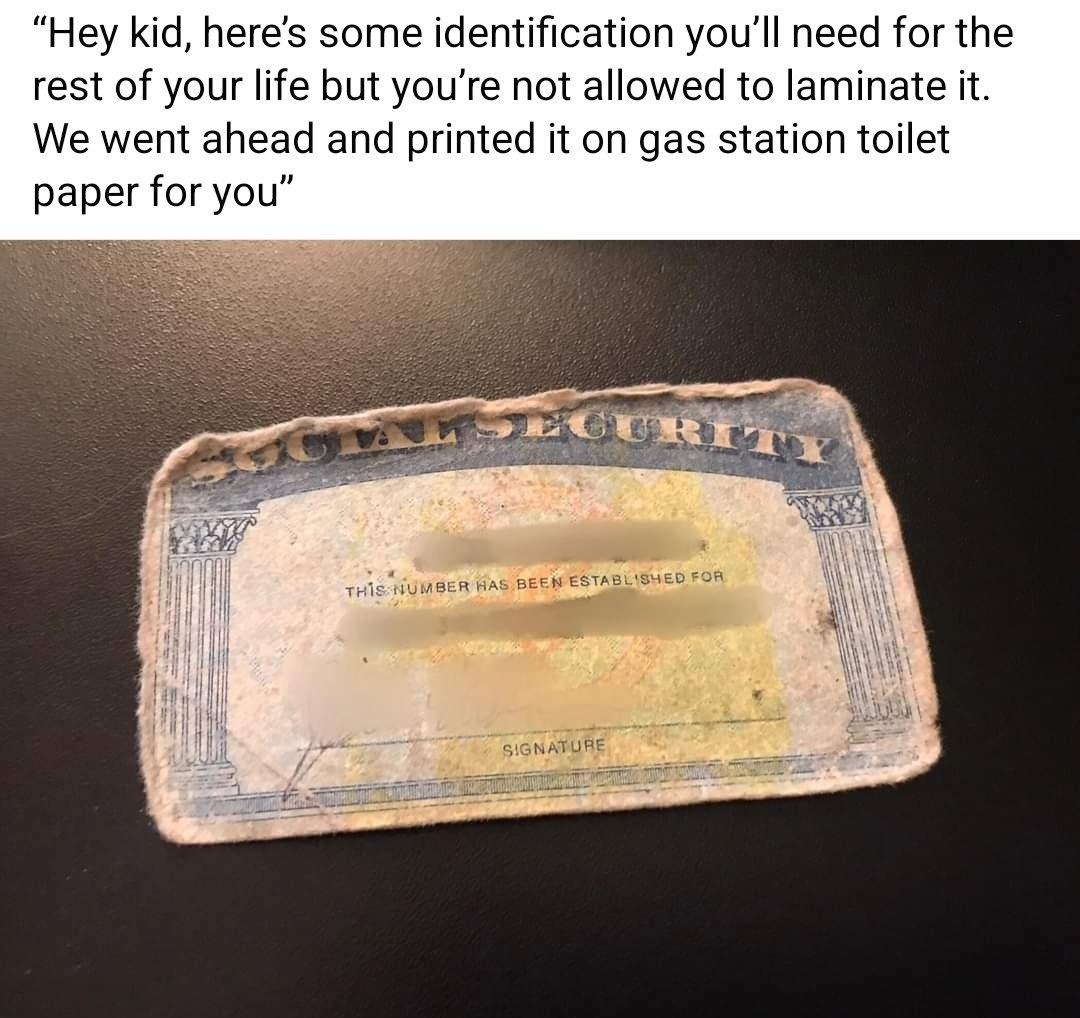this post was submitted on 14 Mar 2024
1164 points (98.2% liked)
Funny
7800 readers
2079 users here now
General rules:
- Be kind.
- All posts must make an attempt to be funny.
- Obey the general sh.itjust.works instance rules.
- No politics or political figures. There are plenty of other politics communities to choose from.
- Don't post anything grotesque or potentially illegal. Examples include pornography, gore, animal cruelty, inappropriate jokes involving kids, etc.
Exceptions may be made at the discretion of the mods.
founded 2 years ago
MODERATORS
you are viewing a single comment's thread
view the rest of the comments
view the rest of the comments

Hey now, I can read...but, what's this A4 paper you speak of?
8/11.5 but more metric
sips tea and extends pinky
Am I doing metric right?
Actually no, the Brits shit on us for it but by most approaches they're actually even worse than we are
The bruvs be usin' STONE out here and acting like they get to crack wise
Not sure if a joke or an actual paper size
Actually a size. More commonly referred to as "letter" sized. It's 8x11.5 inches, which is pretty close to A4, but it'll confuse printers if you mix the 2 up.
So far all printers I've seen can switch between both. The real problem is your Writer/Word document, because after the slight reformatting it's now all over the place.
It's actually 8.5x11 not 8x11.5
More Square root, you mean!
You mean 8.5/11?
You mean 8.5x11
It's a size of paper with an aspect ratio of 1:√2, and the short edge that is 21cm long. The long edge will then be 21√2 = 29.7cm. The aspect ratio has the interesting property that it can be halved and doubled while remaining constant.
This has been your ISO fact of the day.
Subscribe to ISO facts
ISO 7304-2:2008 defines a standard for cooking spaghetti. Subsection 3.9 "Completeness" closely resembles "al denté" but isn't true al denté; as 3.9 states "no white core visible" when a noodle is inspected crosswise with a razor blade. Al denté phase is sensed via the teeth for texture differential of the inner and outer part of a spaghetti. No agreement has been reached by international consortium of Italian food preparers and dentists as to which tooth is to be used. Thus, the standard must be reviewed every 5 years by sensory analysis.